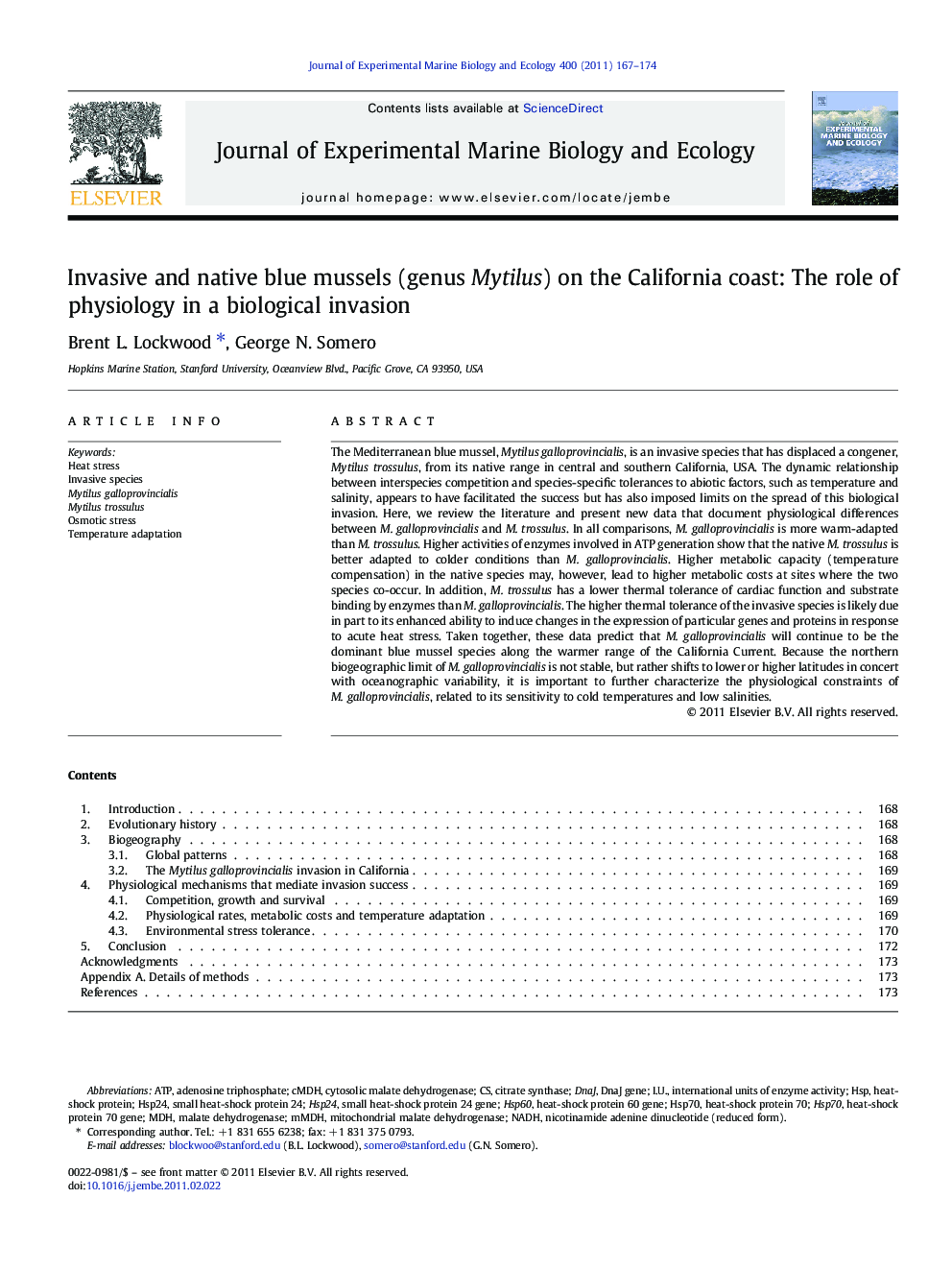| کد مقاله | کد نشریه | سال انتشار | مقاله انگلیسی | نسخه تمام متن |
|---|---|---|---|---|
| 4396345 | 1618463 | 2011 | 8 صفحه PDF | دانلود رایگان |

The Mediterranean blue mussel, Mytilus galloprovincialis, is an invasive species that has displaced a congener, Mytilus trossulus, from its native range in central and southern California, USA. The dynamic relationship between interspecies competition and species-specific tolerances to abiotic factors, such as temperature and salinity, appears to have facilitated the success but has also imposed limits on the spread of this biological invasion. Here, we review the literature and present new data that document physiological differences between M. galloprovincialis and M. trossulus. In all comparisons, M. galloprovincialis is more warm-adapted than M. trossulus. Higher activities of enzymes involved in ATP generation show that the native M. trossulus is better adapted to colder conditions than M. galloprovincialis. Higher metabolic capacity (temperature compensation) in the native species may, however, lead to higher metabolic costs at sites where the two species co-occur. In addition, M. trossulus has a lower thermal tolerance of cardiac function and substrate binding by enzymes than M. galloprovincialis. The higher thermal tolerance of the invasive species is likely due in part to its enhanced ability to induce changes in the expression of particular genes and proteins in response to acute heat stress. Taken together, these data predict that M. galloprovincialis will continue to be the dominant blue mussel species along the warmer range of the California Current. Because the northern biogeographic limit of M. galloprovincialis is not stable, but rather shifts to lower or higher latitudes in concert with oceanographic variability, it is important to further characterize the physiological constraints of M. galloprovincialis, related to its sensitivity to cold temperatures and low salinities.
Research Highlights
► Physiology likely facilitates the relative success of invasive over native Mytilus.
► The invasive is warm-adapted compared to the native in all traits examined.
► Temperature compensation may lead to greater metabolic costs in the native.
► Gene and protein expression mediate a higher thermal tolerance in the invasive.
► A reduced tolerance to low salinity may limit the further spread of the invasive.
Journal: Journal of Experimental Marine Biology and Ecology - Volume 400, Issues 1–2, 30 April 2011, Pages 167–174